In Defense of: The Porsche Panamera
For all intents and purposes, a Porsche sports car is the very definition of luxury; an indication that there's another car in the garage for the daily to and fro. By default, this significantly limits the brand’s potential audience. And no matter how lucrative it may be, no matter how pure the brand’s following, watching competitors reaping the benefit of additional markets is no easy job for an auto exec. In fact, it was only a matter of time before the German automaker bucked against its self-imposed limitations and tried something different.
Of course, the real problem was Porsche’s chosen direction. No one expected the Sultans of Stuttgart to offer the world an SUV. Unleashed in 2003, the Cayenne released an enormous and entirely justified torrent of outrage. That the German automaker, formerly one of the auto industry's most focused players, would break away from its core competency was bad enough. But an SUV? The gap between an SUV and a sports car is a chasm that should not be crossed in one bound, if at all.
Even worse, the Cayenne sold at a dizzying pace. It soon became– and currently remains– the brand’s best-selling model in North America. Sales have flooded the company with new revenue. Rather than follow through on their promise to apply the additional funds to sports car development, Porsche used the cash to take control of Volkswagen, Audi and their portfolios. And instead of using any leftover cash to create a new entry-level sports car, or engineer a two-door 928 successor, Porsche crafted another alleged monstrosity: a four-door sedan.
And yet the Panamera doesn’t deserve the criticism; it shouldn't to be lumped-in with the Cayenne. The German sedan is a natural progression for Porsche. It represents a sense of continuity with the brand’s central promise (that's wholly absent from the Cayenne): practical performance.
Now don’t ask me “what could be more practical than an SUV?” and quote slalom and zero to sixty times for the hyperformance Cayenne Turbo S. It’s true: just as Porsche’s engineers managed to do the impossible with the 911’s rear-engined layout (ei.e. keep it from constantly flying backwards into a hedge), they somehow built a truck that can corner. But it does not handle like a Porsche. It handles like a truck modified by Porsche. In terms of brand-faithful performance, the Cayenne ain’t it.
As a car, the Panamera is sure to have it: that unique combination of engine character, suspension sophistication, steering communication, braking ability and sublime chassis control that endears Porwche's mean machines to their rabid fan base. The Panamera will accelerate, corner and brake like no other sedan built. The Nürburgring-fettled passenger car will be a "real" Porsche.
At the same time, the new Porsche Panamera will be a superb everyday family sedan. It’s literally made for toting children, suitcases, groceries and stuff. That may not seem to be a concept inherent to a car company that built its name on speed and performance, but many 911 owners consider the Carrera’s ability to stash small children and/or a weekend’s worth of luggage the most important factor that sets its apart from sports cars offering similar levels of performance.
Of course, all of this assumes the production Panamera will live up to this ideal. It certainly seems to be the case, given the brand’s history and the information gathered since the car's initial announcement in 2005. The exterior resembles an oversized and stretched 911, right down to the hatchback (which has become the main point of discussion surrounding the car). Even better, there's every possibility that the finalized design will lessen the frumpy rear.
For the Porsche purist, there is a potential downside to the Panamera: marginalizing the 911. While the Carrera will always have its true believers, the Panamera will offer most (if not all) of the 911’s performance with a great deal more practicality. Now that the Boxster/Cayman are finally getting the power and respect they deserve, now that there will be a Porsche whose get-up-and-go rivals the Carrera, the 911 will fall in an uncomfortable niche between a pure, affordable sports car and a day-to-day road rocket/GT.
In any case, for a car company striving to expand its reach, the Panamera is a logical new direction. The real issue is what comes next. The sure-fire success of Porsche's sedan will undoubtedly trigger another, significantly more worrisome test of the automaker's character. After all, the distance between a full-size luxury car and a compact executive car is only a hop, skip and a jump away.
[Kevin RE Watts writes about Lexus at passionatepursuit.com.]
More by Kevin RE Watts
Latest Car Reviews
Read moreLatest Product Reviews
Read moreRecent Comments
- JMII I did them on my C7 because somehow GM managed to build LED markers that fail after only 6 years. These are brighter then OEM despite the smoke tint look.I got them here: https://www.corvettepartsandaccessories.com/products/c7-corvette-oracle-concept-sidemarker-set?variant=1401801736202
- 28-Cars-Later Why RHO? Were Gamma and Epsilon already taken?
- 28-Cars-Later "The VF 8 has struggled to break ground in the increasingly crowded EV market, as spotty reviews have highlighted deficiencies with its tech, ride quality, and driver assistance features. That said, the price isn’t terrible by current EV standards, starting at $47,200 with leases at $429 monthly." In a not so surprising turn of events, VinFast US has already gone bankrupt.
- 28-Cars-Later "Farley expressed his belief that Ford would figure things out in the next few years."Ford death watch starts now.
- JMII My wife's next car will be an EV. As long as it costs under $42k that is totally within our budget. The average cost of a new ICE car is... (checks interwebs) = $47k. So EVs are already in the "affordable" range for today's new car buyers.We already have two other ICE vehicles one of which has a 6.2l V8 with a manual. This way we can have our cake and eat it too. If your a one vehicle household I can see why an EV, no matter the cost, may not work in that situation. But if you have two vehicles one can easily be an EV.My brother has an EV (Tesla Model Y) along with two ICE Porsche's (one is a dedicated track car) and his high school age daughters share an EV (Bolt). I fully assume his daughters will never drive an ICE vehicle. Just like they have never watched anything but HiDef TV, never used a land-line, nor been without an iPad. To them the concept of an ICE power vehicle is complete ridiculous - you mean you have to STOP driving to put some gas in and then PAY for it!!! Why? the car should already charged and the cost is covered by just paying the monthly electric bill.So the way I see it the EV problem will solve itself, once all the boomers die off. Myself as part of Gen X / MTV Generation will have drive a mix of EV and ICE.



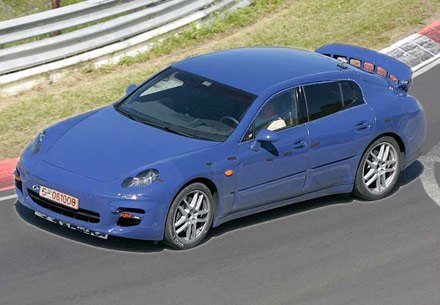














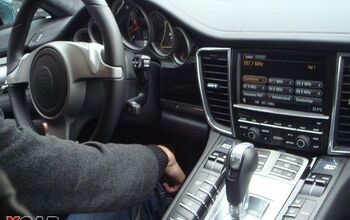
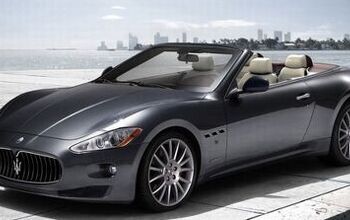
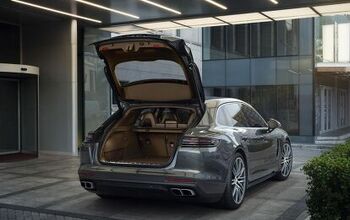
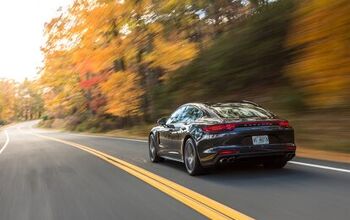
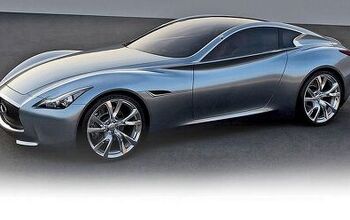



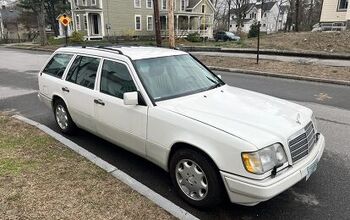


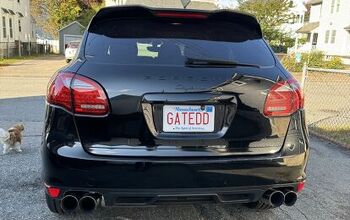




Comments
Join the conversation
Many of those of us privileged to own a Porsche 928, one of the best cars ever built, look forward happily to the arrival of the Panamera, and particularly to the probable coupe version. Four cam V8s are good for the soul.
Weight. That's the issue. If they can deliver a lightweight sedan, then it will be a real Porsche. But if it is 3600+ lbs, then I disagree with the editorial, it will be just another flavor of German automobile. And in this modern day with all the safety and emissions equipment, not to mention luxury doodads, a 3000 lb sedan is tough to accomplish...